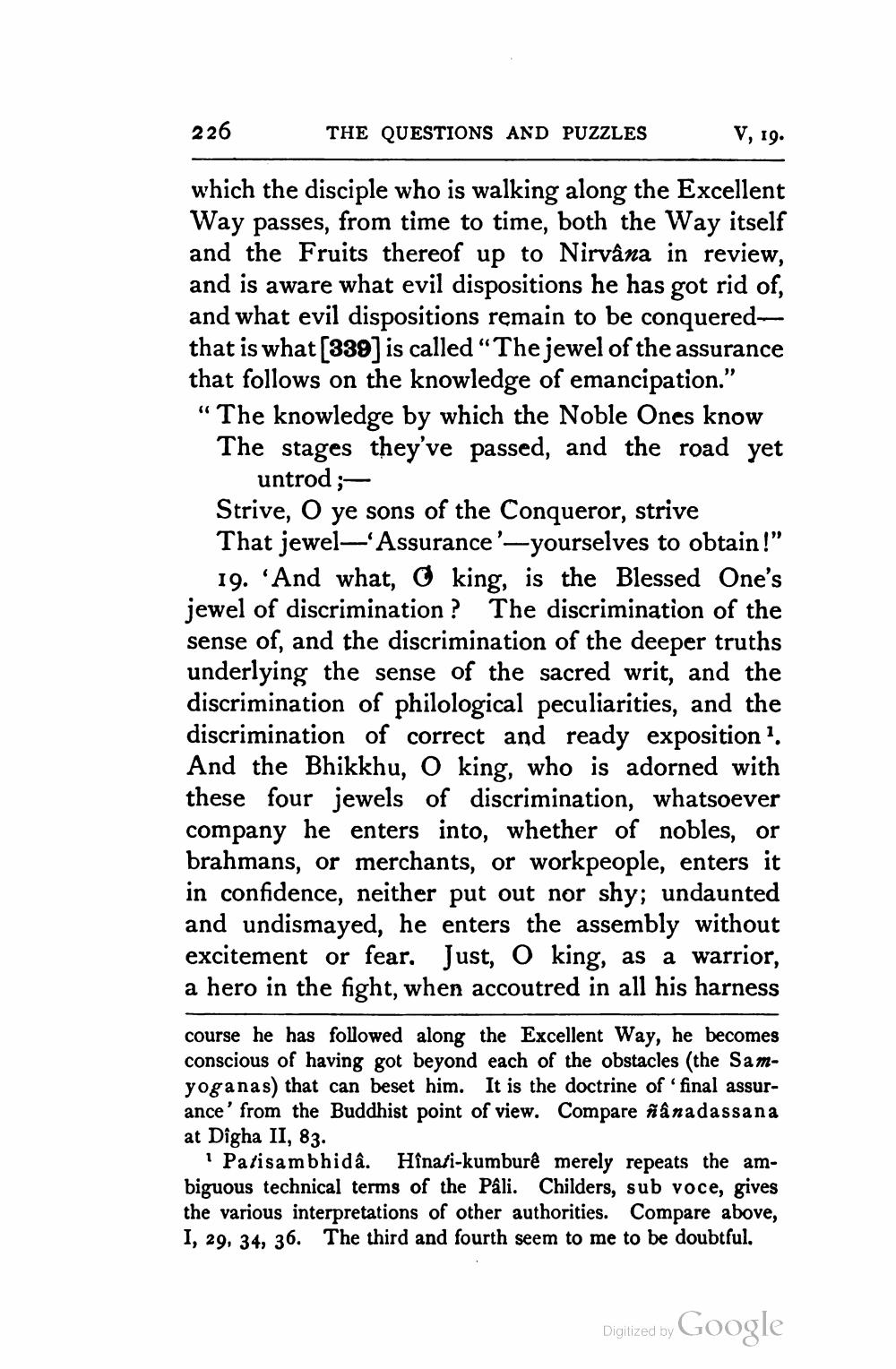________________
226
THE QUESTIONS AND PUZZLES
V, 19.
which the disciple who is walking along the Excellent Way passes, from time to time, both the Way itself and the Fruits thereof up to Nirvana in review, and is aware what evil dispositions he has got rid of, and what evil dispositions remain to be conquered that is what[339] is called “The jewel of the assurance that follows on the knowledge of emancipation.” “The knowledge by which the Noble Ones know The stages they've passed, and the road yet
untrod; Strive, O ye sons of the Conqueror, strive That jewel—Assurance'-yourselves to obtain!"
19. 'And what, king, is the Blessed One's jewel of discrimination ? The discrimination of the sense of, and the discrimination of the deeper truths underlying the sense of the sacred writ, and the discrimination of philological peculiarities, and the discrimination of correct and ready exposition. And the Bhikkhu, o king, who is adorned with these four jewels of discrimination, whatsoever company he enters into, whether of nobles, or brahmans, or merchants, or workpeople, enters it in confidence, neither put out nor shy; undaunted and undismayed, he enters the assembly without excitement or fear. Just, o king, as a warrior, a hero in the fight, when accoutred in all his harness
course he has followed along the Excellent Way, he becomes conscious of having got beyond each of the obstacles (the Samyoganas) that can beset him. It is the doctrine of final assurance' from the Buddhist point of view. Compare ñanadassana at Digha II, 83.
1 Patisambhidâ. Hînati-kumburê merely repeats the ambiguous technical terms of the Pâli. Childers, sub voce, gives the various interpretations of other authorities. Compare above, I, 29, 34, 36. The third and fourth seem to me to be doubtful.
Digitized by Google




